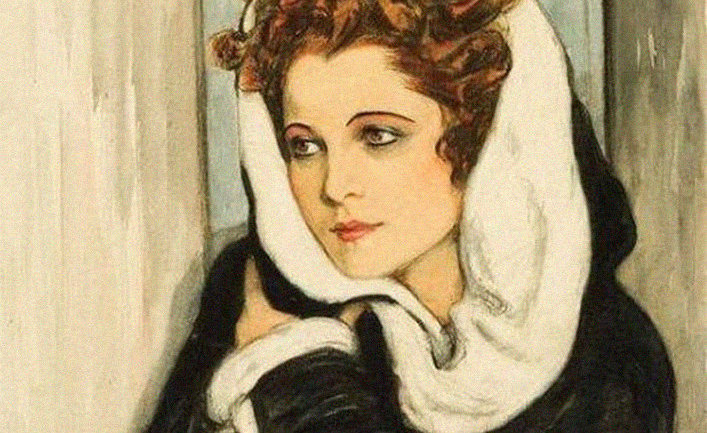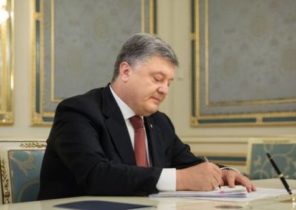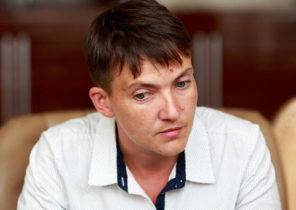
“God, she was beautiful.”
Ask famous people questions about the secrets of maintaining the appearance and preservation of health is not an invention of recent times. In June 1928 the magazine “Uhu” published the results of a survey “secret of my beauty.” The secrets were revealed and the actress Carola Neher (Carola Neher) — they are, as she coyly remarked, not be the secrets, here’s their formula: eggs, fat, ice and exercises.
She, according to her, uses for hair eggs for forehead fat to the eyes of cold water, and face the ice. And then: “For the body needs exercises. For the feet need to move. Belly need bread, fruits, some meat. For the heart needs love. No alcohol, only the occasional glass of champagne. In a week one cigarette, it should be spread at all this time.” In the photo you can see a slender woman of 27 years old in striped shorts, which give a nice opportunity to see her legs.
Ten years later, in the chamber of the Soviet secret service and then the Stalinist prison camp it would be difficult to comply with these principles of body care, nutrition and movement. One of the most famous Actresses of the Weimar Republic, the wife of the poet of Klabunde (Klabund) and Muse of Bertolt Brecht (Bertolt Brecht) became a woman without a name. Her audience become prisoners, which she read poems or passages from plays. She recited them in a whisper because loud talking was forbidden, and violation is strictly punished. For example, a prohibition for a walk or a prohibition of reading.
Historians and international human rights organization “memorial” centre in Moscow for the first time in detail told about this fate in the book “Carola Neher — celebrated on the stage, lost in the Gulag” (Carola Neher — gefeiert auf der Bühne, gestorben im Gulag). The articles in this collection introduce us to life Neher, theater, immigrants and artists in the Soviet Union and the Stalinist purges in these circles.
The daughter of a music teacher and the owner of the restaurant, Carola Neher early acting career. Already in the early twenties she got a first small role in Baden-Baden, Munich and Breslau (now wrocław — approx. TRANS.). It was soon noticed her talent, and her voice — his critics called “Indian”. In their comments, Neher was “a child of nature with semi-singing on”. Already seriously ill with tuberculosis Klabund admires her style: “She’s aggressive and exciting actress of the art Nouveau style”. Art Nouveau is evident in her appearance. She has a boy cut, clothes hermaphrodite, have a driver’s license, and she tries to imagine herself in the image of the “femme fatale”.
In 1926, Carola Neher moved to Berlin, where he quickly becomes a famous actress. In the same year, appear two figures which later determined her fate: Hitler becomes leader of the Nazi party, Stalin turns his rival Trotsky in opposition, which should fight.
But while the life Neher occurs without interference, even when the death of Klabund in 1928 for a short time unsettles it. She can choose a role. Her Polly in “Trehgroshovaya the Opera” still remains unsurpassed. Policy almost absolutely no interest in the actress. But she was in contact with her thanks to his novels. Conductor Hermann Cherchen (Hermann Scherchen), who had a sympathy for the Soviet Union, drew its attention to Marxist literature. On one of the courses of Marxist labor school, she falls in love with a teacher of Russian language and Communist Anatol Becker (Anatol Becker), whom he soon married. But her political views remain largely the usual dreams, like most artists of her time.
After 1933 the policy, however, becomes a part of her life. Her brother, after a concert tour in Russia sent to the concentration camp Dachau. She left Germany, and at the end of 1934, she is deprived of German citizenship, after she, along with 27 other artists, journalists and politicians, in particular, Heinrich Mann, lion Feuchtwanger, Anna Seghers and Gustav von Wangenheim signed the protest against the Anschluss of Nazi Germany Saarland.
However salutary, as was supposed, fled to the Soviet Union becomes a ride to disaster. There were no signs of such a turn in life Neher. The evening of March 5, 1933 in a Moscow apartment came German immigrants together to listen to the radio and discuss the results of the elections to the Reichstag. It was the Communists, for many years consisted in the ranks of the KKE and the only military functionaries of the party apparatus. They critically spoke about the role of their leadership and, first and foremost, party leader Ernst Thalmann (Ernst Thälmann), who took the post at the end of the Weimar Republic.
Suspicion of “creating factions”
Such private collections, if they are learned, quickly fell under suspicion as an “action on the creation of the faction” led to the imposition of a strict reprimand or even expulsion from the party. And there was information about this “meeting of voters” because some of the participants reported their criticisms to the leadership of the KKE in exile and directly to the Soviet secret service.
There suggested that this “election night” was held for the creation of a Trotskyist conspiracy. In the centre it was Erich Wollenberg (Wollenberg Erich), honored the Communist and military expert, who is already in the mid-twenties, were trained in the red Army of the Soviet Union. He was expelled from the KPD in 1933. After his attempt to recover the party failed, and his proposal to send him to Germany to participate in the illegal resistance movement was rejected in 1934 he went to Prague.
Karola Neher was caught in the maelstrom of the alleged conspiracy, although he came to the Soviet Union three months later, after the debate about the election. Fate has disposed so that a year later she during a tour in Prague met with Wollenberger, this has happened to their mutual friend Zenzl Musam (Zenzl Mühsam), wife of the poet Erich Musama.
Neher took with him letters of Vallenberga to friends in the Soviet Union. Friendly service, absolutely harmless. And confirmed what she once said in 1927: “We, the artists on the stage in his element, but in life we all stumble”.
“The mother of a young Soviet citizen”
At first, her life in the Soviet Union, goes well. From Carola Neher was born the son of that propaganda noted with some delay. 2 Feb 1936 newspaper Arbeiter Illustrierten Zeitung put the photo of the mother with one year old son. “Carola Neher, German actress, was the mother of a young citizen of the Soviet Union” — such was the caption under the photograph. Here, the newspaper quoted Neher: “I have long wanted to have a child, but I lacked the courage to do this. Only in the USSR, I was able to bring this desire to life.”
As a professional she wanted to work on stage, artists in exile. Its purpose was to obtain a permanent engagement in a German theatre/the Left column, which was led by Gustav von Wangenheim. In parallel, Carola Neher performed a poetry reading at the literary evenings, and participated in a small radio. She created interesting writing sketches with portraits of his theatrical colleagues such as Ernst Busch (Ernst Busch), Erwin corridor (Erwin Piscator), or Max Reinhardt (Reinhardt Max). It was all casual work is a very busy actress, a job that was more disappointing than it brought joy.
12 may 1936, Stalin began his Great purge, her husband Anatol Becker is arrested for alleged Trotskyist activities. After a few weeks in jail gets and Carola Neher.
It Gustav von Wangenheim, from which she hoped to obtain professional help, writes a denunciation of the Soviet secret service on her and her husband, and rubbing in the trust, reports that he, with all his vigilance, it was hard to “reveal the already poisoned Trotskyism.” Karola Neher was a very serious case as it is written in the Protocol of interrogation of Wangenheim. Allegedly found that she had maintained contact with Wollenberger, he was seen with her in Prague in 1934. She allegedly recruited people for him. And disastrous conclusion of Wangenheim: “I believe Karola Neher adventurer…. Neher configured anti-Soviet.”
After a short process in which the Neher acknowledges that he took with him letters of Vallenberga, its sentenced to ten years in prison camps. Anatol Becker was executed in 1937. Their son was sent by the authorities to an orphanage.
Women prisoners admired Neher, who, despite suffering, have maintained their beauty. “She tried to keep the appearance, take care of themselves, engage in regular exercises. Unlike the rest of us she was still beautiful skin is smooth, despite the terrible conditions under which people quickly got old,” says Hilda Duthie (Hilda Duty). Women prisoners were struggling to maintain her self-esteem.
In 1941, Carola Neher and the other women was transferred to another Gulag camp of Sol ‘ -Iletsk in the South Urals, where in one cell, there were 50-60 women. Hygienic conditions were catastrophic. Lice women were forced to completely cut off the hair, but Neher was always trying to stand out. “God, she was beautiful,” recalls Margarete Buber-Neumann (Margarete Buber-Neumann).
However, the raging fever doesn’t give anyone mercy. Neher with high temperature placed in a chamber, where the most severely ill patients. From there she never returned. Carola Neher died on 26 June 1942. The last thing she asked his cell mates to take care of her son. If they are released, they will need to consult two of her friends: the actor Ernst Bush and the writer Gottfried Benn, a close friend of Klabunde.
She called Bertolt Brecht. However, she in 1939 in a letter to the Chairman of the Council of people’s Commissars Vyacheslav Molotov complained that she was forbidden to write family in Germany and Brecht, who was in exile in Denmark. She clearly trusted him. Brecht knew about her fate, in 1937, he dedicated her a poem. The rest of Brecht wrote Reinhard Mueller, was dominated by “concentrated silence.”
When Hilda Duthie returned to Germany, Gottfried Benn had died. But she found in Berlin Ernst Busch and asked him to help find George. Duty hoped that Bush immediately rushed to call. But it is, as she says, barely heard her. In the end, he, however, expressed willingness to talk with the widow of Brecht, Helene Weigel (Helene Weigel). She, according to him, had more of an impact. Whether he did it or not, Hilda Duthie was unable to learn.
Gustav von Wangenheim after 1945 became the first postwar artistic Director of the German theatre in East Berlin, the famous Director and screenwriter, winner of the National prize of the GDR. He died in 1975. His son believed that his father could write a denunciation. According to son, he just signed the Protocol, when he was summoned to the office of the secret service.
The last known letter Carola Neher was sent in March 1941 the leadership of the orphanage. Since she’s a year and a half have not heard anything about your son, I would like to know: “How is my son physically and mentally? How does he feel? How much does he weigh and how tall is he?… Learned whether he has to read and write?” In the end, she with fear asks, “if he Knows anything about your mother?”
But no one had informed him about loving parents. After the war, George Becker learned that he was the son of a German mother and an enemy of the people, it was a disadvantage in the harsh climate of children’s homes. But he had a desire to know more. After service in the Soviet army, he used his position to consult from the old children’s homes, for what he came up with a public request on my part. He announced the name of his mother, he continued the search and, in the end, we received confirmation of rehabilitation Carola Neher from 1959. It was about the Prosecutor who sent a petition to cancel the judgment and terminate the proceedings for lack of corpus delicti.
After all this, George Becker wanted to leave the Soviet Union. In 1974, he submits an application to emigrate to the Federal Republic of Germany. Authorities did not give him permission, and only after petition to Soviet leader Leonid Brezhnev, supported by Chancellor Willy Brandt (Willy Brandt), began to slip. In 1975, when East Berlin died, Gustav von Wangenheim, wrote a denunciation of Carola Neher, her son went to West Germany to start a new life. At this time, he was the same age as Carole Neher at the time of her death.







